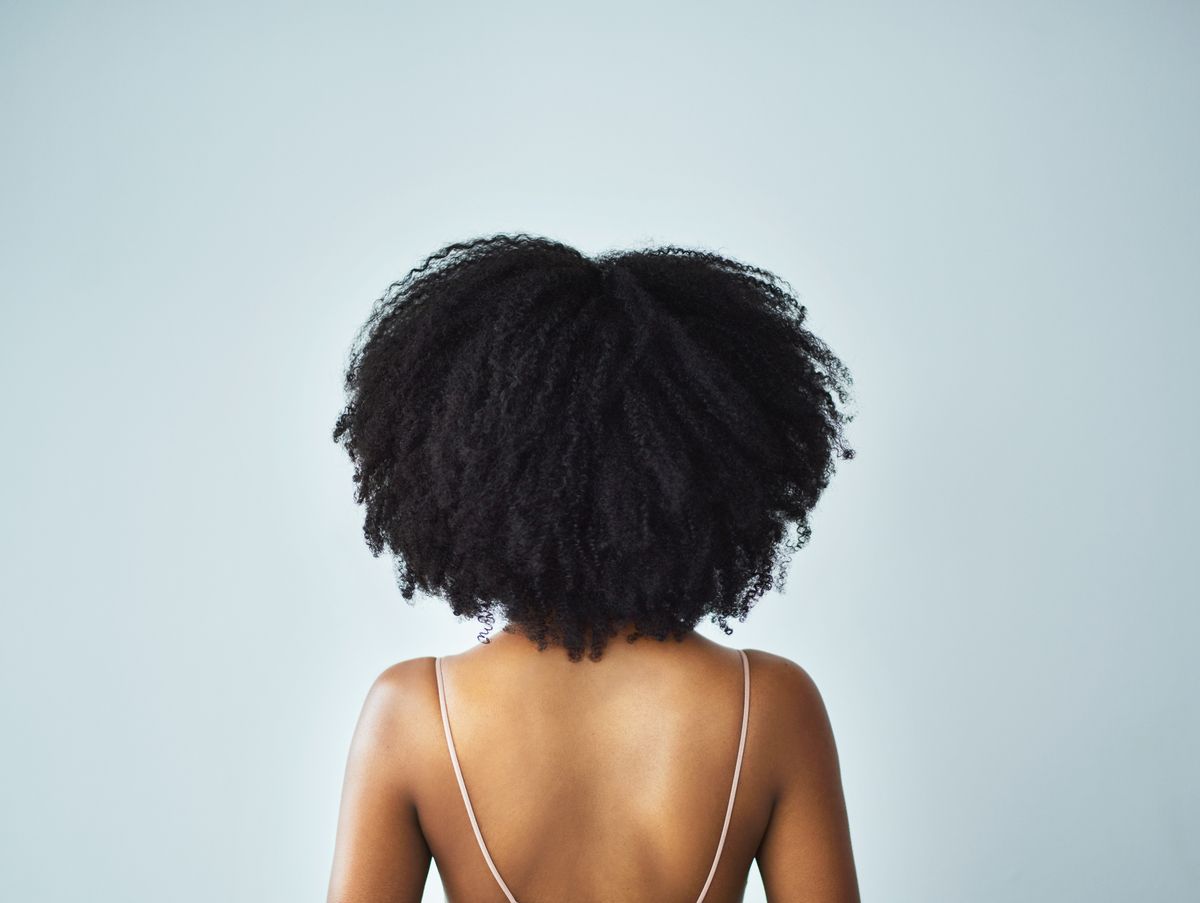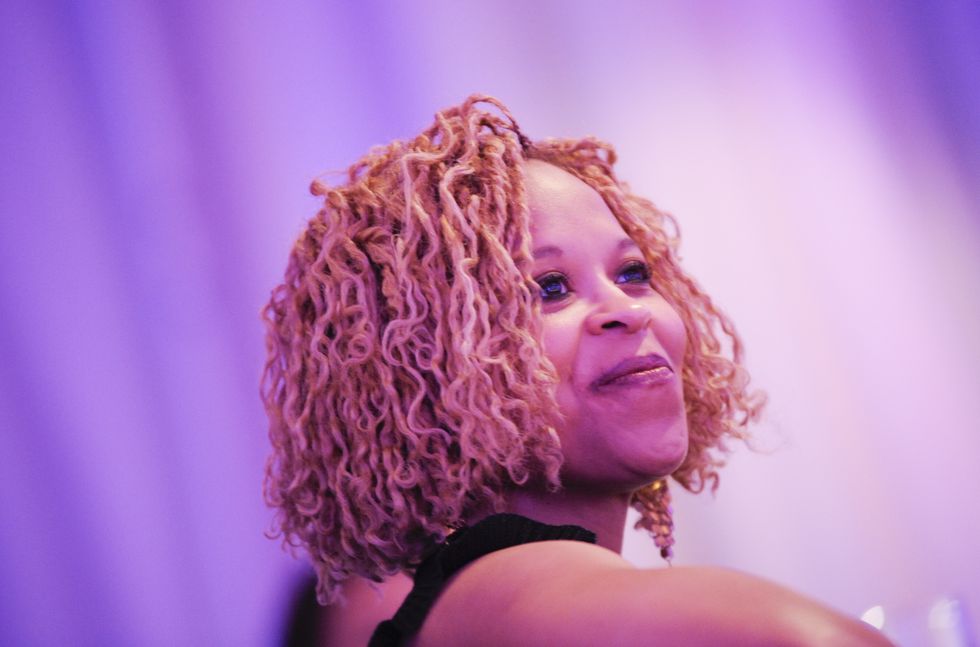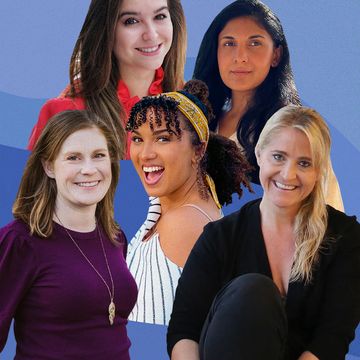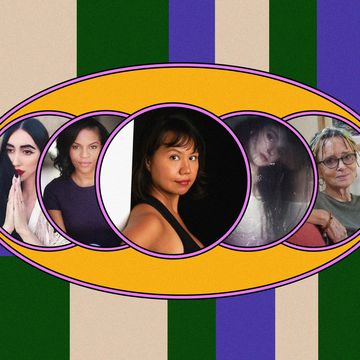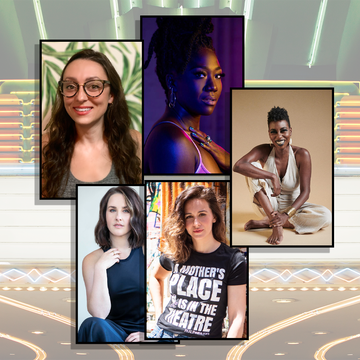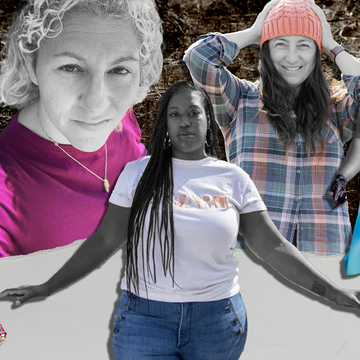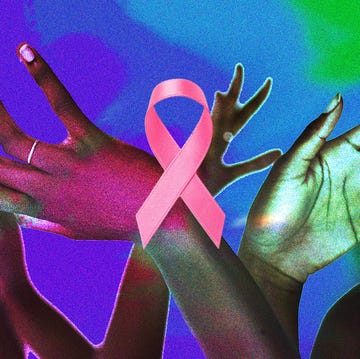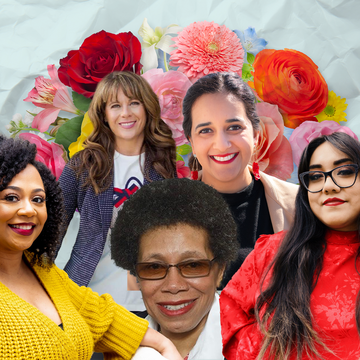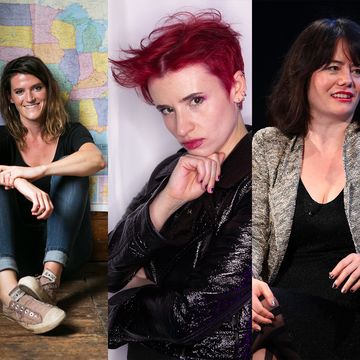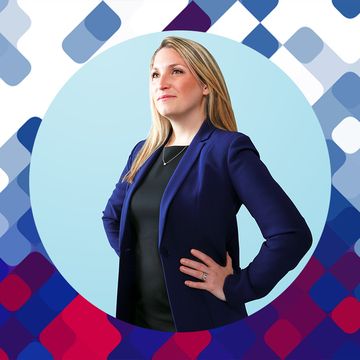Back when I was in graduate school, I worked at an educational software startup in New York City. One day, after rocking a colorful head wrap that showed off my twist-out to work my manager came over to tell me that my hair was not appropriate for the office because "durags" were not allowed. As a 23-year-old woman in her first "real" job (and 3,000 miles from home), I felt confused, angry, and embarrassed. But sadly, I wasn't alone.
Black women have long been told we must wear our hair in a "professional" manner when we're at work, but that word doesn't just translate to "cute" and neat." Instead, "professional" is typically defined as a style that is not explicitly ethnic (read: black). But these standards are not just enforced by employers; some institutions, like Hampton University, a historically black school, even instituted bans on natural hairstyles like cornrows and locs because they wanted their students to land a position in corporate America after graduation. When questioned about the business school's policy back in 2012, Dean Sid Credle explained, "If you're going to play baseball, you wear baseball uniforms. If you're going to play tennis, you wear [a] tennis uniform. Well, you're playing that business." According to Credle, and far too many others, black hair is not appropriate for the workplace unless it's fried, dyed, and laid to the side. But thankfully, things are changing.
After years of high-profile incidents where both students and employees have been singled out and disciplined for wearing natural hairstyles, advocates mobilized to ensure black folks would never again be legally discriminated against for their hair. In March, California State Senator Holly Mitchell introduced SB 188, the Creating a Respectful and Open Workplace for Natural Hair Act, into the legislature. After being passed by California's Senate Judiciary Committee in June, Governor Gavin Newsom signed the bill, known as "The CROWN Act" into law on July 3. New York quickly followed suit with Governor Andrew Cuomo signing the CROWN Act into law on July 12. Now, a group of advocates known as the CROWN Coalition have come together to champion legislation nationwide that would protect black people's choice to wear their natural hair.
"We formed a black beauty alliance to make sure you are clear on how we, together, can impact our community," Esi Eggleston Bracey, chief operating officer and executive vice president of Unilever, said at an event during this year's Essence Festival. Dove, one of Unilever's largest brands, is the founder of the CROWN Coalition, and Bracey has been an outspoken advocate for the proposed legislation.
After surveying 2,000 women, Dove found that 80 percent of the black women who responded said they feel like they have to change their hair from its natural state for work. The responses fueled Bracey's passion around the issue. “Due to my personal experiences as a Black woman in the corporate world and multiple news stories over the past year about girls being sent home from school for wearing braids, and women losing job opportunities because of having natural hairstyles, I knew we had to help change this. In conversations, we saw the power in partnering with like-minded and respected organizations committed to driving change and impact in the Black community to create what is known today as the CROWN Coalition.” she said.
While the coalition is hoping to replicate the success they had in California, they aren't simply relying on statehouses across the country to do the right thing. Instead, Dove and the CROWN Coalition are hoping to get 100,000 women across the country to sign a petition to make hair discrimination illegal.
The Crown Coalition — which also includes the National Urban League, the Western Center on Law and Policy, and Color of Change — supercharged their efforts at this year's Essence Festival, which attracted more than 500,000 people, a majority of whom were black women, to New Orleans.
This year, Dove hosted several events at Essence Fest to educate attendees about The CROWN Act and how they could get involved in spreading it across the country. Because, as Bracey noted, women should be accepted in "all of our glory and our hair is our crown." And black women should be allowed to shine, especially in the office.
Get Shondaland directly in your inbox: SUBSCRIBE TODAY
